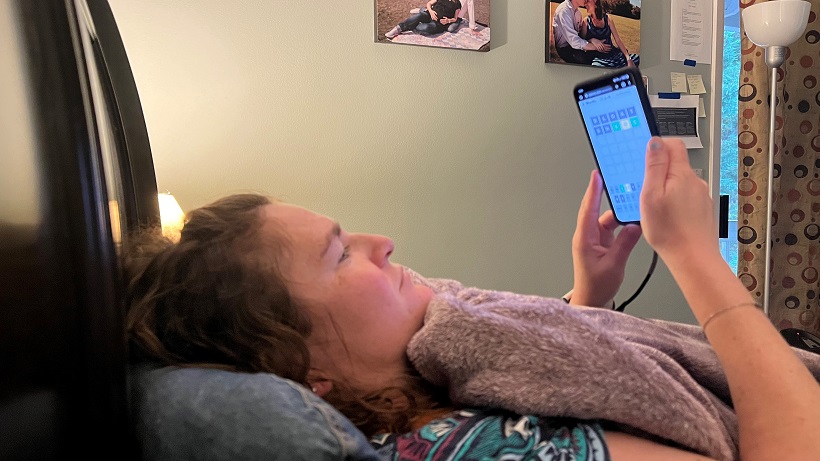About a year and a half ago, the whole world was obsessed with Wordle, the online word-guessing game. Plenty of people still play (including me), and even continue to share their scores on social media. Scrolling through Facebook, you’ll find different responses. In fact, living on the West Coast, I actually had to stop myself from checking Facebook before I completed that day’s puzzle because other people’s reactions would actually make me nervous about my own skills. Sometimes the word is easy, sometimes it’s more obscure. Some players are proud, some are frustrated. It’s fascinating for everyone everywhere to be working on finding the same answer, working toward the same goal, and yet, true to human nature, have widely varying reactions to the challenge. Perhaps there’s something at the root of this notion, which is exactly why I love this week’s Torah portion.

This week we read Parshat Shlach Lecha and the story of the spies. The parshah begins with Moshe sending 12 spies, one from each tribe, into the land of Cana’an to bring back an accounting of the land. The spies return with their report, and it’s pretty discouraging. Two spies report back with a positive message, but the negativity of the other ten reports instills so much fear into the nation that they decide they do not want to make the journey into the promised land after all. This infuriates God, who then decrees that anyone who went out from Egypt at age 20 or older will not be allowed to enter the land of Cana’an. This generation will purposefully die out so that a new generation, unfettered by the destructive mindset of their predecessors, can start anew.
The spies – it’s a classic story of groupthink, influence, and peer pressure. They all go into the same land to explore, and yet somehow two of the spies have a different take. There is much commentary on why, how, and what exactly made them stand out. However, the text itself gives us a big clue, if you’re into grammar. In chapter 13, when they go into Israel, there is a change in verb form. “They went up (plural) and came (singular).” In other words, they all started together, but arrived at different places, perhaps both mentally and physically.
The Talmud suggests that this change in verb conjugation is about intention. While most of the “spies” went into the land and were gathering economic and military data, Caleb went to go visit the tomb of the patriarchs in Hebron. He went up in a group, but arrived at his conclusions about the land through his own exploration. Perhaps at the initial encounter he did see the land like the other scouts, but he pushed on using his own thinking to find a place that had meaning for him.
Caleb and Joshua pave their own path in this week’s Torah portion. They’re able to escape the influence of the collective voice to show the power of the individual and some positive thinking. That’s not to say that the individual is always right or that going against the majority is always the preferred method. But perhaps the Torah portion this week is a lesson that sometimes the only way to get the full picture is to consider both sides, and then to draw your own conclusions.



